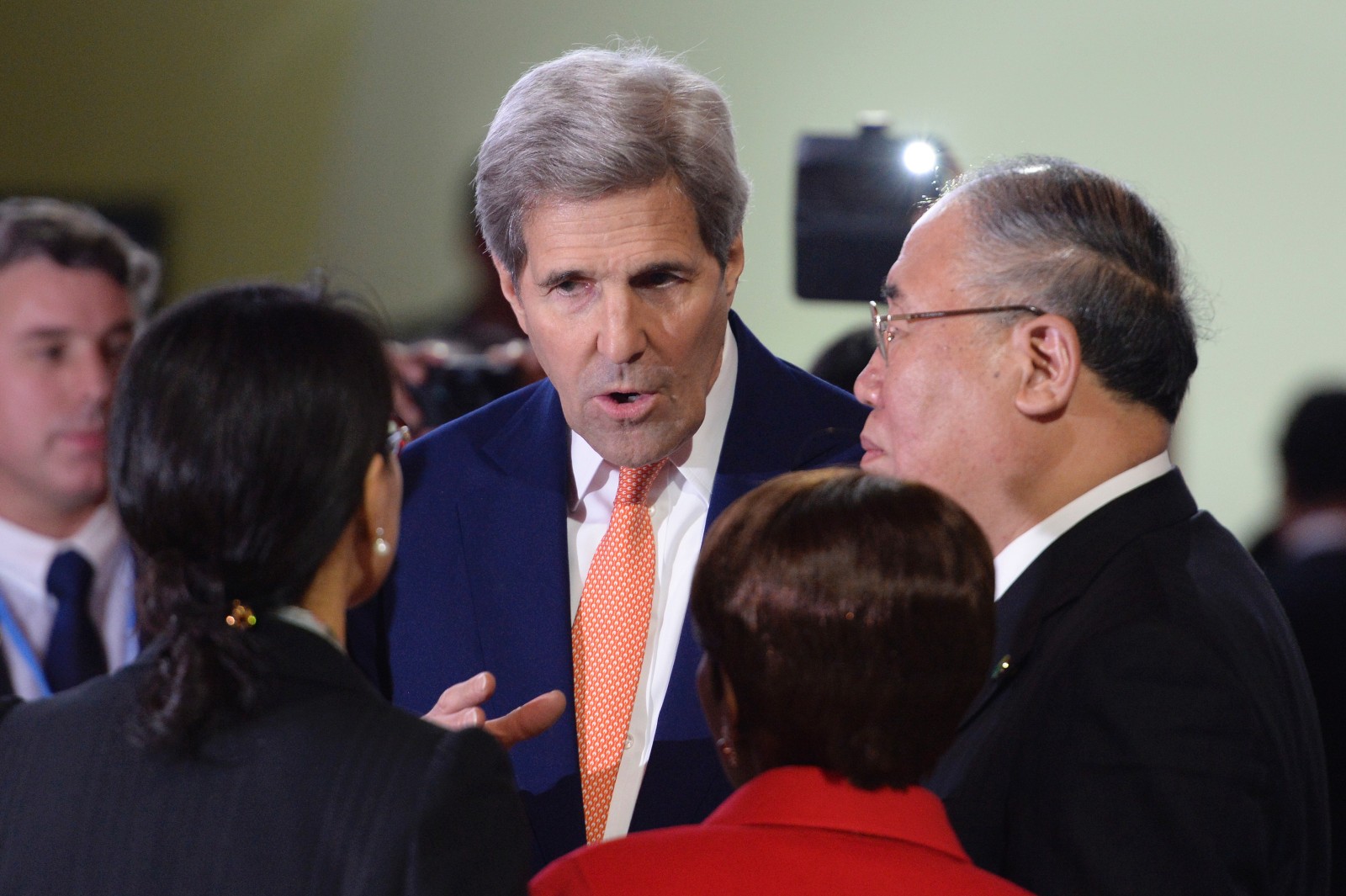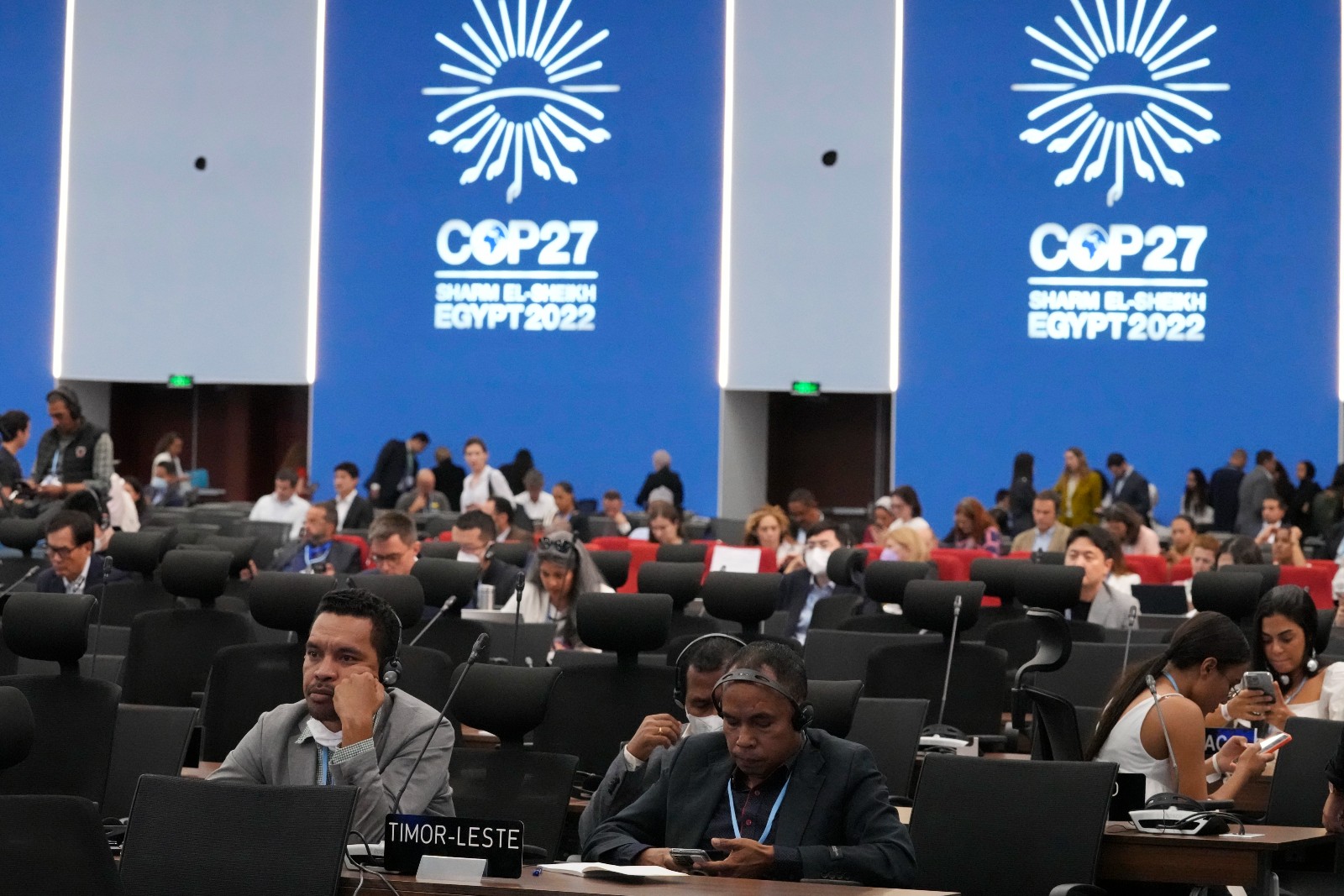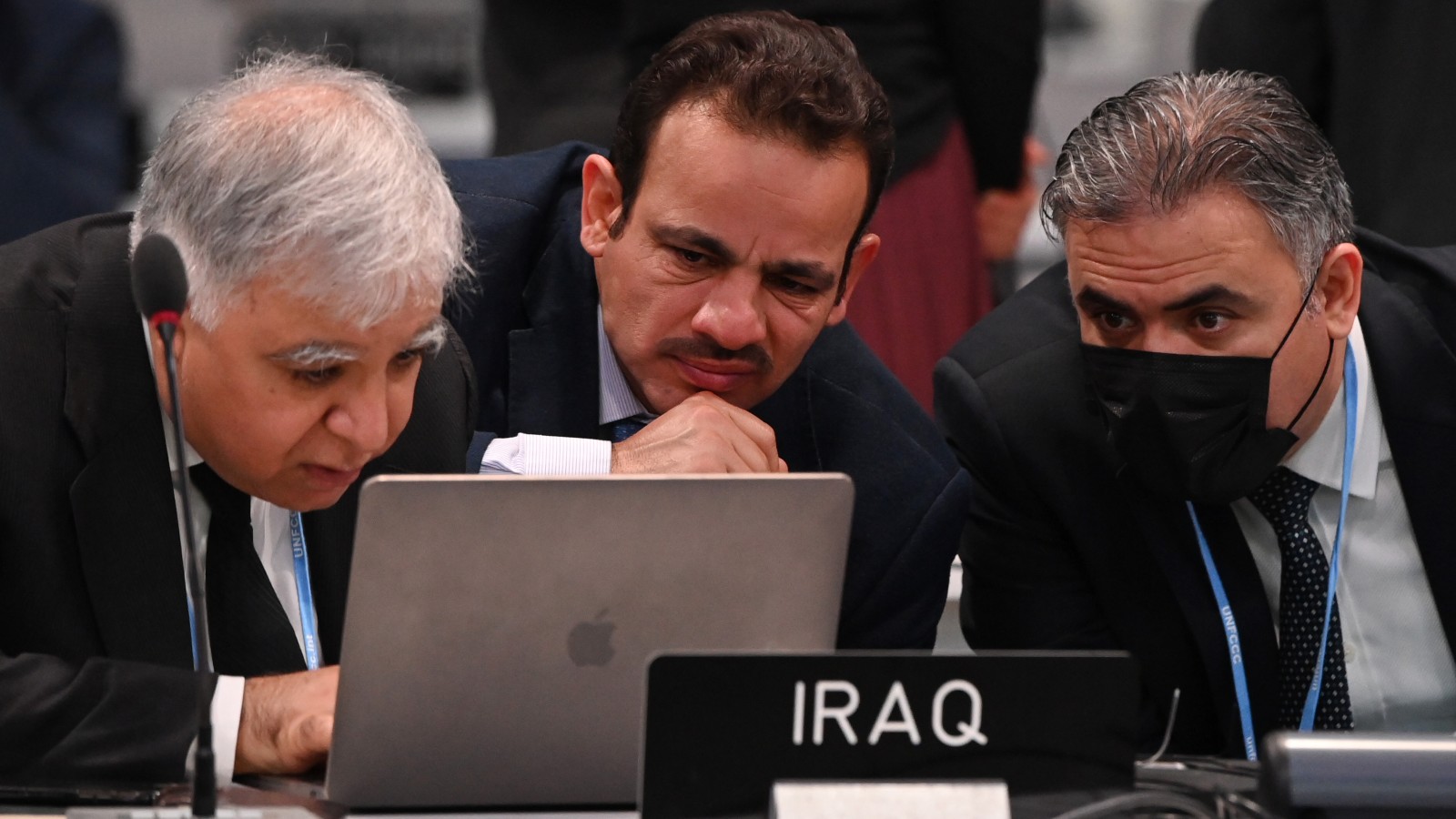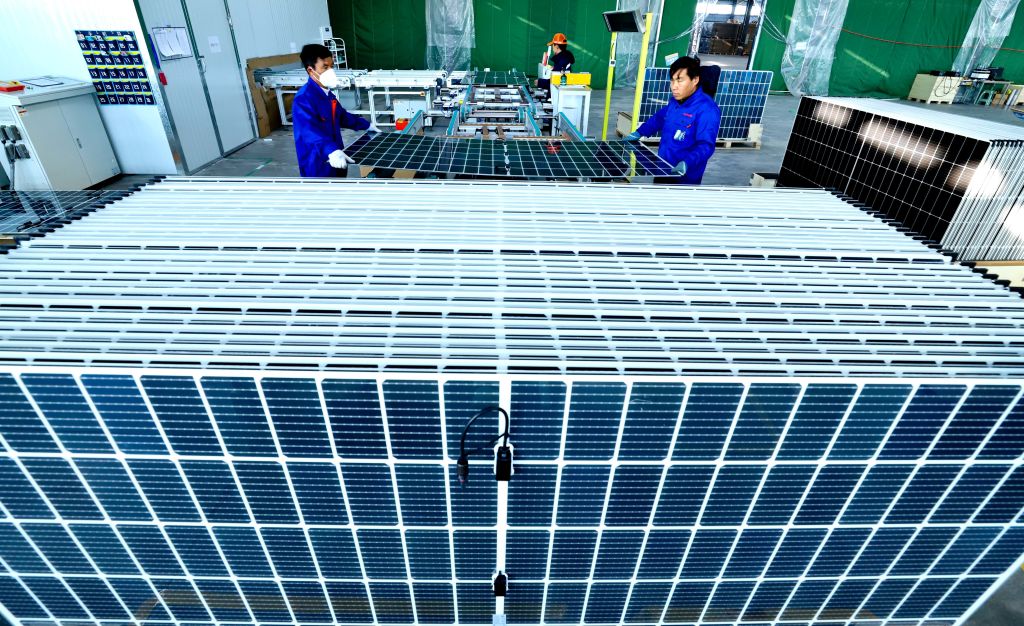In recent years, environmental activists have lambasted annual United Nations climate conferences for producing “empty words” and “hollow promises” instead of concrete actions to slow global warming. Many of those critics argue that follow-through — actually implementing commitments made so far — matters more than showing up for more “blah blah blah,” as Swedish climate activist Greta Thunberg famously described world leaders’ climate pledges.
But to negotiators at these U.N. summits, words matter quite a bit. In 2007, negotiators at COP13 in Bali famously debated a single comma late into the night. In 2015, the United States’ objection to the word “shall” nearly derailed the Paris Agreement, a landmark climate treaty in which countries agreed to try to limit warming to 1.5 degrees Celsius (2.7 degrees Fahrenheit). That’s because minor language tweaks can add up to major policy implications by either strengthening or weakening countries’ obligations. Some words, like “shall,” even carry special legal status, compelling countries to follow through on their pledges. Former negotiators gave Grist an overview of how and when language matters — or sometimes doesn’t — during climate negotiations.
At climate conferences, countries often use certain words to soften language on tricky topics, such as financing for damages caused by climate change, to reach agreement. “The issue is that we have to reach a consensus,” said Ian Fry, U.N. special rapporteur on human rights and climate change and a former negotiator for Tuvalu and the Solomon Islands. That means all 198 countries need to agree on the annual U.N. climate conference’s final decision — a document that describes the actions countries will take to address climate change. “Usually there are specific words that are used as some sort of compromise to gain the consensus required.”
Fry calls these phrases “slippery words.” One example is “as appropriate” or “if appropriate,” he said. If, say, a decision called for wealthy countries to provide climate adaptation funding to developing countries, rich nations might push to tack on “as appropriate” at the end — a qualifier that Fry says gives donor countries much more discretion and agency. “It turns a general obligation into one that’s determined by the party who’s providing the funds,” he said.
Another example is the word “consider.” Rather than committing to an action, countries might choose to say they will “consider” a given measure, Fry said. He describes this “slippery word” as a kind of delay mechanism — deciding to “consider” something, rather than deciding something outright, means “there’s no conclusion on this issue and we’ll think about it further.”
Viewed in a positive light, minute language tweaks are a creative way to reach a deal among countries with vastly different priorities. Susan Biniaz, who has served as a lead U.S. climate negotiator for more than three decades, wrote in 2016 that while countries sometimes need to compromise on major issues, “Lesser known are the smaller, largely language-based tools negotiators have used to resolve differences, sometimes finding a solution as subtle as a shift in the placement of a comma.” Biniaz cataloged nearly 30 pages of real-life examples of these “language-based tools,” including adding footnotes, using the passive voice (for example, writing “support shall be provided” rather specifying where that support will come from), and using certain verbs to avoid creating legal commitments.

Under international law, some verbs are “legally binding,” meaning parties are strictly obligated to follow through on those commitments. Most verbs used in U.N. climate talks, like “will” and “should,” are not legally binding — but a few, like “shall,” are. In 2015, one of the final drafts of the Paris Agreement stated that wealthy countries like the U.S. “shall” set economy-wide targets to cut greenhouse gas emissions. That could have forced the U.S. to send the treaty back to a Republican-majority Senate for approval, causing negotiators to scramble to change it to a “should” at the last minute. “When I looked at that, I said, ‘We cannot do this and we will not do this,’” then-Secretary of State John Kerry told reporters at the time. The U.S. delegation claimed that “shall” had been mistakenly swapped in at the last minute; Paris convention leaders eventually categorized it as a typo.
“These are the games that are played by countries to minimize their obligations,” Fry said of the incident in Paris, where he represented the delegation of Tuvalu.
At other times, word choice doesn’t mean much at all, said Kaveh Guilanpour, a former climate negotiator for the European Union, United Kingdom, and the Alliance of Small Island States. Among verbs that are not legally binding, there’s little difference in how politically meaningful they are. For example, an agreement might “urge” countries to reduce greenhouse gas emissions — or “encourage,” “request,” or “invite.” Unlike “shall,” none of these words strictly commit countries to take action. They might even be randomly chosen — during negotiations, “Words are plucked out at the last moment just to find the way forward,” Guilanpour said.
Get caught up on COP28
What’s far more important is the substance of the decision itself, he said. In 2021 at the COP26 meeting in Glasgow, Scotland, for example, world leaders explicitly referenced fossil fuels — the primary cause of climate change — for the first time. Diplomats agreed to pursue a “phasedown of unabated coal power” and a “phaseout of inefficient fossil fuel subsidies” in the final decision of that conference. Last year, at COP27 in Sharm El-Sheikh, Egypt, diplomats largely repeated the same commitment.
That’s a big deal, Guilanpour said. The 2015 Paris Agreement, for example, doesn’t mention “fossil fuels,” “coal,” “oil,” or “gas” at all. Guilanpour said it’s a sign that climate negotiations are gradually beginning to target specific sectors like the oil and gas industry. Those signals, he said, make it clear “to the world and to certain markets that this transition is happening” — and that businesses need to prepare.
Fry noted that a similar cascading effect happened after COP25 in Madrid, where leaders formally connected climate change to ocean conservation for the first time. “That has driven a whole lot of work by various U.N. agencies, NGOs, etc., to develop work around the connection between oceans and climate change,” he said.
COP28 in Dubai, which begins this week, will likely continue highlighting the need to move away from fossil fuels. But as in the last two years, diplomats could end up wrangling over which words they should use to describe that transition. At COP26 and COP27, small island nations called for a “phaseout” of coal, which refers to a complete displacement of coal with renewables. But oil-exporting countries like Saudi Arabia and coal-reliant economies like India successfully pushed for a “phasedown” instead, which would significantly reduce coal use but stop short of eliminating it entirely. Some countries also tried to limit the use of all fossil fuels, not just coal — a debate that will likely arise again at this year’s negotiations.

Fry said the subtle change to “phasedown” rather than a “phaseout” ultimately weakened countries’ climate commitments. “There’s quite a significant difference between saying fossil fuels are going to end and saying fossil fuels will continue into the future,” he said. “It sends a weakened signal to businesses and other countries.” A group of 21 countries called the High Ambition Coalition have advocated for a “phaseout of fossil fuels” in a statement ahead of this week’s conference.
Another point of contention is the word “unabated.” Wealthy nations including the U.S. and the European Union have called for a “phaseout of unabated fossil fuels.” The High Ambition Coalition, which includes Barbados, Finland, and the Marshall Islands, has said that wording would leave the door open for “abated” coal, oil, and gas projects — those that use carbon capture technology. Those countries have argued that “abatement technologies” cannot be used to “green-light fossil fuel expansion.” In September, the International Energy Agency characterized carbon capture as “expensive and unproven at scale.”
A U.S. State Department official told reporters in November that whether it’s “phasedown,” “phaseout,” or different wording altogether, this year’s decision will likely include some reference to the transition away from fossil fuels. Guilanpour added that regardless of what negotiators settle on in Dubai, it’s what happens after everyone goes home — and begins the work of actually implementing those commitments — that counts.
“It isn’t just about the nuances of the language, but also following through,” he said.



